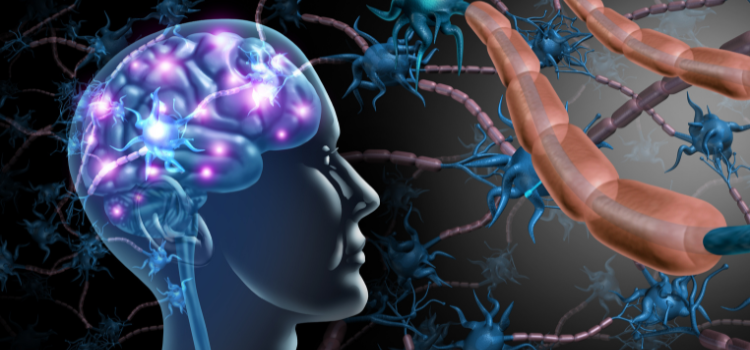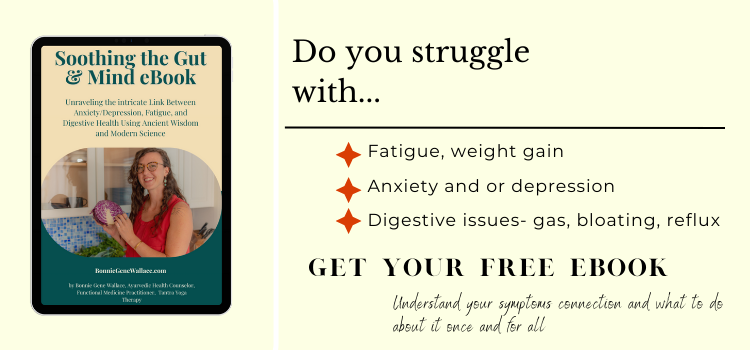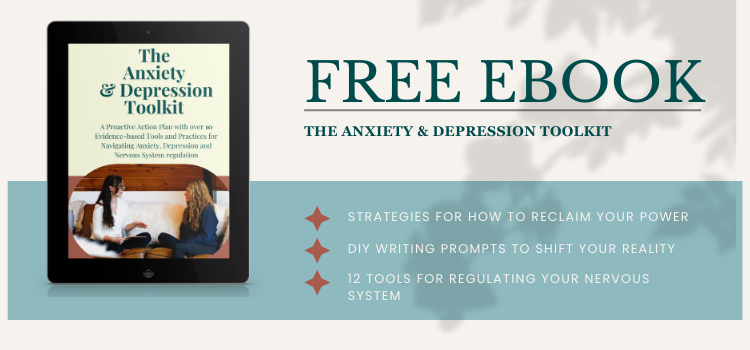Understanding The Gut-Brain Axis
Why understanding the gut-brain axis is crucial for our longevity
The last few decades have ushered in a paradigm shift in our understanding of the profound interconnectivity within the human body, central to which lies the gut-brain axis—a complex communication network that intricately links the enteric nervous system of the gut with the central nervous system. Pioneering research in this domain has illuminated how this bidirectional highway facilitates a continuous dialogue that not only regulates digestive processes but also significantly impacts mental and emotional well-being.
This article endeavors to explore the multifaceted nature of the gut-brain axis, delving into its foundational development from birth, the modulatory effects of diet and nutrition, and the nuanced influences of psychological stress. With a burgeoning body of evidence linking gut health to a spectrum of conditions—from gastrointestinal disorders to anxiety and depression—the gut-brain axis emerges not merely as a pathway of interest but as a cornerstone of holistic health.
By examining the intricate interactions within this axis, we gain insights into the potential of probiotics as therapeutic agents, the impact of dietary patterns on neurological and mental health, and the critical role of early-life nutrition in shaping this dynamic relationship. The implications of this research transcend traditional boundaries of medicine, advocating a comprehensive approach that encompasses gut health as a pivotal factor in the pursuit of overall wellness. As we navigate through the complexities of the gut-brain connection, we lay the groundwork for innovative treatments and preventative strategies that align with the ethos of personalized medicine.
In charting the course of this paper, we affirm the gut-brain axis as not only a fascinating scientific frontier but also a vital component of an integrated approach to health that harmonizes the physical, mental, and emotional dimensions of the human experience.
The implications of the status of our oral health, vagus nerve, medications and probiotics in relation to our gut health
Oral Health's Impact on Gut Health:
Current research underscores the significance of oral health as a starting point for overall gut health. The mouth's microbiome, if imbalanced, can lead to systemic issues like Small Intestinal Bacterial Overgrowth (SIBO) and Irritable Bowel Syndrome (IBS). Common habits, such as consuming sugary foods or using certain oral hygiene products, can contribute to this dysbiosis. The research indicates that a focus on maintaining a healthy oral microbiome is crucial for preventing downstream gastrointestinal disorders.
Medication Effects on Gut Function:
The impact of medications, particularly Proton Pump Inhibitors (PPIs) and Metformin, on gut health is a significant finding. These medications can impair digestion, affect stomach acid production, and alter gut microbiota. PPIs, for example, are linked to a more immunogenic intestinal environment, potentially leading to immune hypersensitivity. Metformin, used for type 2 diabetes, can affect B12 absorption and contribute to nutrient deficiencies, highlighting the need for tailored medication management in gut health.
The Digestive Cascade: Medication's Impact from Mouth to Gut:
Ibuprofen and aspirin have direct erosive effects on the mucosa of the gut lining, which impairs absorption especially with regular use. Many people will use these medications in anticipation of discomfort, especially as they get older. And this comes at a price. Not only is there a risk of malabsorption with repetitive use, but our most important enzymes are not created in the pancreas, but in the brush border lining of the intestines. When we are repeatedly damaging and creating oxidative damage to that brush border, we will not produce optimal levels of lactase for example, to help us break down dairy foods. We also are not producing DAO which is an enzyme that degrades histamine. Many people are suffering from histamine overload because they are consuming large amounts of histamine in their food, or the ability to degrade histamine in the gut is impaired because of damage to the brush border lining.
Vagus Nerve and Neurotransmitter Production:
The vagus nerve emerges as a crucial player in gut-brain communication. It's a two-way communication channel affecting digestion, mood, and overall well-being. Research shows that most serotonin, a key neurotransmitter for mood regulation, is produced in the gut, not the brain. This connection implies that gut health directly influences mental health, offering potential new treatment avenues for mood disorders through gut microbiota management.
Metformin: A Double-Edged Sword for Gut Health:
Metformin- type 2 diabetes/insulin resistance. Effective for managing insulin resistance, but one of the effects is it impairs our ability to absorb b12 in the ilium of the small intestine – which has a dramatic effect on b12 status and the reality that when we are looking at “normal” ranges is not optimal value for each person. There is a lot of dysfunction within “normal” ranges. People with diabetes are already at risk for neuropathy, and b12 is essential for the health of the myelin sheath, which is the protective covering around our nerve cells and neurons and neurotransmission. That insufficiency is highly correlated to neuropathy.
We want to pay attention to optimal b12 status- upper half of the reference range to ensure those individuals are not prone to that while using metformin until we resolve the issue at its root and metformin is not even needed.
Metformin can also cause loose stools, resulting in nutrient deficiency. A woman with hypothyroidism might actually have a “natural” transit time of constipation, paired with metformin which promotes looser stools, that combination may look like optimal bowel movements. What this means is that we start to peel the onion one layer at a time. In doing so, some symptoms may worsen- which does not mean we made an inappropriate change. There can be a lot of movement across multiple systems as we start to make shifts.
Probiotics and Mental Health:
A groundbreaking aspect of recent research is the role of probiotics in managing mental health. Studies indicate that probiotics can normalize cortisol levels, regulate the Hypothalamic-Pituitary-Adrenal (HPA) axis, and reduce pro-inflammatory cytokines. This suggests a significant link between gut microbiota diversity and mental well-being, with probiotics potentially offering benefits for conditions like anxiety and depression.
Diet's Role in Shaping the Gut Microbiome:
Your diet is one of the most significant factors shaping your gut microbiome. Diets high in diverse fibers (from vegetables, fruits, legumes, and whole grains) encourage the growth of beneficial bacteria. These bacteria ferment fibers into short-chain fatty acids (SCFAs), like butyrate, propionate, and acetate, which have anti-inflammatory properties and are crucial for maintaining the health of your gut lining. This is vital as a compromised gut lining can lead to 'leaky gut syndrome', where bacteria and toxins can enter the bloodstream, potentially leading to inflammation that affects the brain.
On the other hand, diets high in processed foods, sugar, and unhealthy fats can promote the growth of harmful bacteria, increase gut permeability, and contribute to systemic inflammation. Chronic inflammation is now being recognized as a critical factor in the development of many brain disorders.
Functional Foods for Gut-Brain Health:
Incorporating 'functional foods' into your diet is key. These include:
- Omega-3 Fatty Acids: Found in fatty fish, flaxseeds, and walnuts, omega-3s are essential for brain health, reducing inflammation and supporting neurotransmitter function.
- Fermented Foods: Foods like yogurt, kefir, sauerkraut, and kimchi are rich in probiotics, which help maintain a healthy gut microbiota.
- Polyphenol-Rich Foods: Berries, green tea, dark chocolate, and olives are rich in polyphenols, which are beneficial for gut bacteria and may also reduce inflammation.
In summary, in Functional Medicine, we focus on a diet that supports gut health as a means to influence brain health. By choosing foods that nurture the gut microbiome, reduce inflammation, and provide essential nutrients, we can make a significant impact on our mental and cognitive well-being.
How does a determined person benefit from the latest research on this topic?
For individuals grappling with chronic digestive issues, mood imbalances, and fatigue, the latest research on the gut-brain connection offers a beacon of hope. This research underscores the crucial link between oral health and gut health, suggesting that improving oral hygiene and microbiome balance could positively impact gut disorders. The understanding that certain medications may exacerbate gut issues prompts a more informed approach to medication management, potentially alleviating gastrointestinal distress.
Furthermore, the role of the vagus nerve in mood regulation and digestion highlights the importance of practices like meditation and yoga for overall well-being. Perhaps most promising is the emerging evidence on probiotics’ role in mental health. By addressing gut microbiota imbalances, individuals can experience relief from mood swings and depressive symptoms, paving the way for a more balanced and energized life. This holistic, research-backed approach empowers individuals to take actionable steps toward healing and well-being.
Enhanced Digestive Health Through Oral Microbiome Care

The connection between oral health and the gut microbiome is a pivotal discovery in gut-brain research. This understanding provides a proactive approach to managing chronic digestive issues. By maintaining a balanced oral microbiome, individuals can potentially mitigate issues like SIBO and IBS. This involves not only diligent oral hygiene but also a diet low in sugar and rich in nutrients that support a healthy oral ecosystem. The mouth, being the entry point of the digestive system, plays a critical role in setting the stage for the health of the entire gut.
Avoiding products that disrupt the oral microbiome, such as certain mouthwashes or sugar-laden foods, is crucial. Furthermore, the inclusion of prebiotic and probiotic foods can foster a beneficial oral environment, which in turn influences the gut microbiota. This comprehensive approach towards oral and gut health can lead to significant improvements in digestive symptoms, offering a new dimension of control and prevention for those suffering from chronic digestive issues.
Diet and Oral Health: Beyond Meals
We should be examining everything we put in our mouths in between meals, not just snacks- cough drops, gum, mints, lozenges, alcohol mouthwash- which promotes a resistant and pro dysbiosis environment in the mouth.
Barrier Integrity: From Leaky Gums to Leaky Gut (Enhanced Intestional Permeability)
The mouth as it relates to barrier function- leaky gut. The gut is designed to be a well-regulated cavity that is separated from the rest of the systemic body by a thin membrane. Same with the lungs and the BBB and the skin or various other mucosal surfaces. In the mouth, when there is evidence of loss of barrier function via leaky gums, we can end up with systemic inflammation because of loss of barrier function. We can end up with Lipopolysaccharides (LPS) debris from the bacteria in the mouth getting into circulation and setting us up for inflammation in the body.
Saliva and Immunity: The First Line of Defense
Pay attention to the health of the teeth, gums, tongue and what you are putting in your mouth. Dry mouth can be medication mediating, lower estrogen levels, or autoimmune dynamic, or dehydration. Drying of mucosa- We need it to be well hydrated to have optimal immune function. If we want to promote rich diverse commensal microbiota in the mouth we need to have good salivary function and be well hydrated (electrolytes) so that downstream we are not contributing to another dysbiosis dynamic. H. pylori or SIBO- dysbiotic bacteria from the mouth could be contributing to that overgrowth in the gut.
Gut-Brain Communication Enhancement Via Vagus Nerve Stimulation

The vagus nerve's role in the gut-brain axis opens new avenues for managing mood imbalances and digestive health. Stimulating the vagus nerve through practices like yoga, meditation, and deep breathing exercises can enhance gut function and mood regulation. This nerve acts as a communication superhighway between the gut and brain, influencing emotional well-being and digestive processes. Regular engagement in vagus nerve-stimulating activities can lead to an improved state of mental health, including relief from symptoms of anxiety and depression.
For individuals with chronic digestive issues, these practices not only provide a way to manage stress, which is often a significant contributor to gut-related problems, but also directly improve gut motility and function.
The bidirectional nature of the gut-brain communication means that improvements in gut health can lead to enhanced mental clarity and mood stability. Incorporating these practices into daily life can result in a more balanced emotional state and improved digestive health, showcasing the power of the gut-brain connection in holistic health management.
Probiotics as a Natural Approach to Mental Health Management

Probiotics' role in mental health management is one of the most promising aspects of recent gut-brain connection research. Probiotics have the potential to rebalance gut microbiota, directly impacting the production of mood-regulating neurotransmitters like serotonin. This can lead to significant improvements in mood disorders, offering a natural and holistic approach to mental health management for individuals with chronic digestive issues. The use of probiotics can normalize levels of cortisol, the stress hormone, thereby regulating the HPA axis, which is often disrupted in mood and anxiety disorders. This regulation can lead to a decrease in the symptoms of anxiety and depression, providing relief and improving quality of life.
Additionally, a balanced gut microbiota through probiotic use can improve overall gut health, which is often compromised in those with chronic digestive issues. The improvement in gut health further supports mental well-being, as a healthy gut is essential for optimal brain function. By incorporating probiotics into their daily routine, individuals can experience a holistic improvement in both mental and digestive health. This benefit is particularly important for those seeking natural and integrative approaches to health, aligning with the principles of functional medicine and offering a complementary or alternative solution to traditional pharmacological treatments.
Systemic Inflammation and its Neurological Consequences
Inflammation in the GI tract places stress on the microbiome through the release of cytokines and neurotransmitters. Coupled with an increase in enhanced intestinal permeability (EIP), these molecules then travel systemically. Elevated blood levels of cytokines and monocyte chemoattractant protein (MCP) increase the permeability of the BBB, enhancing the effects of rogue molecules from the permeable gut. Their release influences brain function, leading to anxiety, depression and memory loss.
Cytokines and Neuroplasticity in Depressive Disorders
Depressive disorders are characterized by both neuroplastic, organization changes and neurochemical dysfunction. Illness is thought to begin when there is deregulation of these systems that can largely be attributed to cytokine release secondary to exaggerated system response to stressors.
Inflammatory Responses and Mood Disorders
Endotoxin infusions to healthy subjects with no history of depressive disorders triggered cytokine release and subsequent emergence of classical depressive symptoms. Studies have established a direct correlation between increased levels of IL-6 and TNG with symptoms of depression and anxiety, indicating that pro-inflammatory cytokines play a role in the development of anxiety and depression. These effects were also found to contribute to a state of chronic inflammation and altered immune cells. It is notable that when TNF alone was administered to healthy subjects, it resulted in no depressive symptoms, suggesting that toxin induced inflammation caused the mood disturbance.
HPA Axis Dysregulation and Mental Health
Pro-inflammatory cytokines are also important stimulators of the HPA axis. Hyperactivity or dysregulation of the HPA axis is one of the most reliable biological readouts in major depression and anxiety.
The Neuro-Immuno-Endocrine Connection
The is an innate connection between our endocrine, neural and immune pathways. This has been demonstrated in germ-free mice showing an increased stress response associated with decreased brain derived neurotrophic factor (BDNF). This was reversed with the recolonization of bifidobacterial species. The bifidobacterial was also shown to alter mRNA expression of GABA receptors and decrease serum cortisol. It is interesting to note here that when mice underwent vagotomies, these changes did not happen. This suggests that the vagus nerve is imperative for the bacteria’s effects on stress response.
Probiotics as Modulators of Inflammatory Pathways
Probiotics have been shown to decrease production of TNF. In people with IBD, probiotics correlated with suppressed levels of pro-inflammatory cytokines, and improved intestinal barrier integrity. Probiotics provide a neuroprotective role by preventing stress-induced synaptic dysfunction between neurons. Probiotics have the potential to diminish the HPA axis response to chronic stressors, and prevent or reverse physiologic damage.
Comparative Effectiveness of Probiotics and Antidepressants
Analogous studies found that probiotic therapy reduced depressive symptoms and improved HPA axis functionality as well as citalopram and diazepam.
In Conclusion: Embracing a Holistic Approach to Gut-Brain Health
In closing, the intricate dance between our gut health and brain function is a testament to the body's interconnected nature. The evidence is clear: upstream factors such as oral microbiome health, dietary choices, and even the subtle nuances of psychological stress, play pivotal roles in shaping our gut environment. This, in turn, has profound implications for our brain health, influencing everything from mood to cognitive function.
Our exploration has revealed that the gut-brain connection is not a simple one-way street but a dynamic, bi-directional pathway, where the gut can influence the brain just as the brain can influence the gut. This understanding necessitates a shift in our approach to health, calling for comprehensive strategies that go beyond symptom management to address root causes.
By delving into the upstream factors that contribute to gut dysbiosis, we can begin to unravel the complex web of interactions that lead to disease. Whether it's the overuse of medications that disrupt gut integrity, diets that promote inflammation, or the pervasive impact of chronic stress, each element requires careful consideration and intervention.
Emphasizing root-cause solutions means prioritizing a diet rich in polyphenols, fibers, and omega-3 fatty acids, fostering a diverse and resilient gut microbiota. It means integrating lifestyle modifications like mindfulness and stress reduction techniques to mitigate the harmful effects of stress on gut health. And importantly, it means adopting a personalized approach to healthcare, where individual variability in gut microbiota and its influence on brain function are considered in the development of treatment plans.
The journey towards optimal health is not merely about suppressing symptoms but nurturing the entire ecosystem of the body. As we continue to uncover the mysteries of the gut-brain axis, let us commit to a model of care that is as intricate and holistic as the systems we aim to heal. By doing so, we can hope to not only treat but prevent the cascade of events that lead to illness, paving the way for a future where holistic well-being is accessible to all.
References:
https://www.ncbi.nlm.nih.gov/pmc/articles/PMC5641835/
https://www.drperlmutter.com/gut-bacteria-protects-brain/
https://www.facebook.com/AppliedFunctionalMedicine/videos/1369734000292412
Related Posts
How our Subconscious Beliefs Shape Our Reality
Have you ever known what to do to help yourself, but just couldn't seem to do the thing you know you needed to do??
Macrocosm - Microcosm
Understand how your enviroment shapes your physical and mental health, and how they each represent each other according to Tantric traditions

UDAY LLC
PO BOX 111
Midvale, Utah
84047
(385) 275-6448
Resources
© 2023 UDAY LLC. All Rights Reserved.
Site Conceived By HealthProWebstie.com



